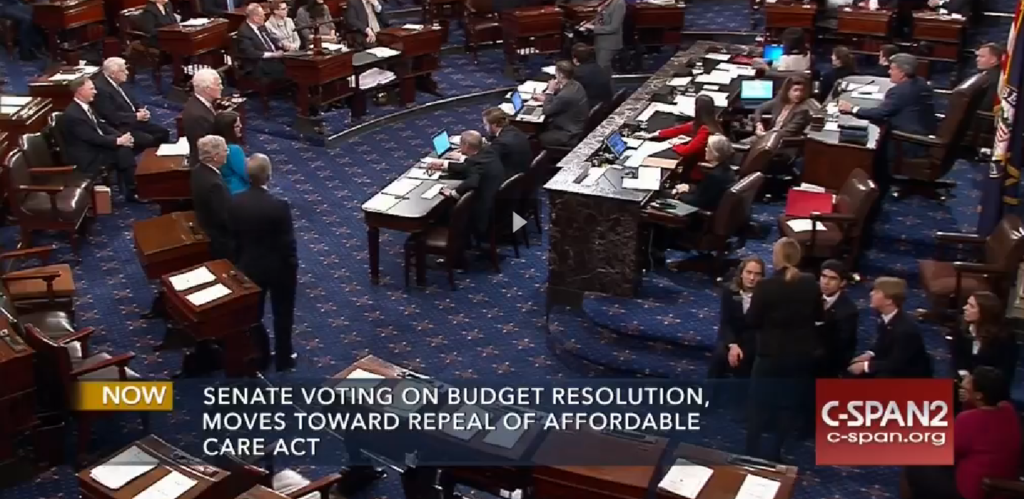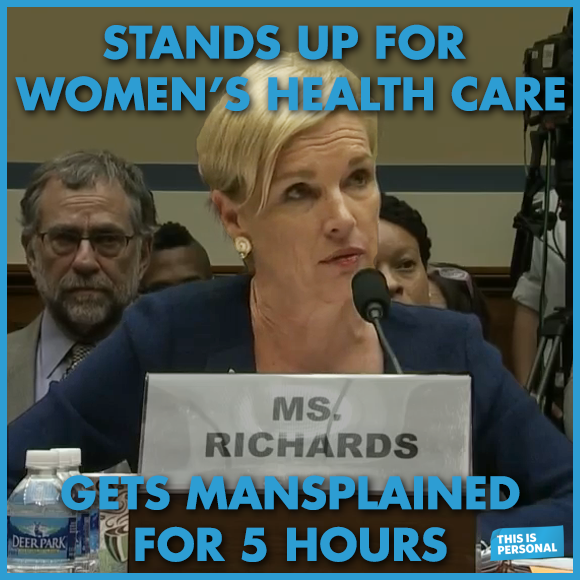How Project 2025 Comes to Life in Trump’s So-Called “One Big Beautiful Bill Act” to Harm Pregnant and Parenting Students

Earlier this month, President Trump signed his “One Big Beautiful Bill Act” into law, enacting several Project 2025 proposals. This Big Betrayal Bill will gut health care, food assistance, and education programs that all support pregnant and parenting students.
If you aren’t familiar with student parents, here’s some basic background information about this group of more than 3 million students:
One in five undergraduate students are student parents and many attend community and technical colleges or entirely online programs. They’re not necessarily living in a dorm at a four-year college with a meal plan, despite what pop culture often portrays as the universal college experience. Student parents also experience issues left out of media portrayals: they disproportionately face food insecurity, housing instability, and a lack of affordable, quality child care. These challenges add up, and despite being a highly motivated population, student parents face significant barriers to graduation.
Let’s take a look at a hypothetical representative example of a student parent, who we’ll call Mary.
Mary is 35 years old and is enrolled in a full-time, online bachelor’s degree program. She is studying statistics to fulfill her dream of becoming a researcher. During the day, she balances her coursework with caring for her two children, who are 2 and 4 years old, and handling household chores. It is difficult to focus on coursework while caretaking, but there is a long waitlist for campus child care and no other affordable option. Mary wonders if she should reduce her course load to part-time but wants to complete her degree as soon as possible. After her classes are done for the day, Mary drops her children off at a friend’s house to work an evening shift at the grocery store. While the income helps her pay bills for rent and tuition, Mary’s budget is tight, and she sometimes skips meals for herself to prioritize feeding her children.
From capping federal student loans and gutting Medicaid and SNAP benefits to defunding reproductive health care providers, the so-called “One Big Beautiful Bill Act” is a devastating loss for student parents like Mary. In a society that is already failing to support pregnant, postpartum, and parenting students, we need more resources to help student parents complete their education. Instead, this bill enacts the blueprint of Project 2025 by stripping away vital resources people need to fund tax breaks for billionaires.
SNAP, Medicaid, and other health care cuts will worsen food insecurity and reduce access to lifesaving health care
Food insecurity faced by student parents is very real: 30% of undergraduate student parents participate in SNAP, compared to 9% of their nonparenting peers.
Yet instead of expanding access to SNAP and supporting food security for student parents and their families, the “One Big Beautiful Bill Act” slashes it: 22.3 million families are estimated to lose some or all of their SNAP benefits following new work reporting requirements and cost increases for some states. This was the exact plan that conservatives laid out in Project 2025, proposing stricter work reporting requirements to qualify for SNAP benefits, a policy that has been shown to increase food insecurity.
These changes will make it more difficult for some student parents to qualify, depending on the age of their children and their level of enrollment. Furthermore, work reporting requirements attached to public benefits have been proven ineffective at increasing employment and instead put up more red tape for students who would otherwise qualify.
Access to health care is also essential for pregnant and parenting students, as well as for their children. Yet, the Big Betrayal Bill strips between 10 and 15 million people of their Medicaid coverage, imposing harsh work reporting requirements proposed in Project 2025 that, again, are ineffective and leave many people who would otherwise qualify without health care. These cuts to Medicaid and the elimination of other subsidies will place a huge burden on states, forcing them to scale back on many programs—including those that aim to improve maternal health, such as reimbursing doulas and community health workers.
The Big Betrayal Bill also attempts to manifest the Project 2025 proposal to defund Planned Parenthood by prohibiting some providers that offer abortions from accepting Medicaid for other health services. Nearly 200 Planned Parenthood centers are at risk of closing, despite their important work of providing birth control, cancer screenings, and other sexual and reproductive health care services to people—including pregnant, postpartum, and parenting students—who may not be able to get care anywhere else.
Tax changes will not improve child care access
Over half of pregnant and parenting students report that not having access to affordable and reliable child care is a barrier to going to school.
Conservatives claim to increase access to child care through expansions to various tax credits (the Employer-Provided Child Care Tax Credit, the Dependent Care Assistance Program, and the Child and Dependent Care Tax Credit (CDCTC)). But these changes do not meaningfully address the child care crisis—much less come anywhere close to offsetting the bill’s massive harms.
Here’s why:
First, the employer tax credit is unlikely to meaningfully increase access to child care services, as it benefits big corporate employers who can already afford to provide child care for their employees and therefore will be of little help for smaller businesses needing assistance to start programs. Additionally, the Dependent Care Assistance Program benefits high-income earners who can already afford to set aside money for child care. And the CDCTC is not refundable, meaning that families with low incomes (who owe little or no federal income taxes) will receive little to no benefit from its expansion. These changes will not meaningfully increase the supply of child care or help families with low incomes afford it, leaving most parenting students in the dust. In reality, these meager tax credits are designed to divert attention from the trillions of tax cuts for the wealthy that actualize Project 2025’s goal of creating tax policies that benefit the wealthy and deprive us of revenues that could go towards meaningful change, such as universal child care.
Cuts to student loans make higher education less accessible
Student parents also disproportionately struggle with income security, making it more difficult to afford higher education. Researchers have found that a student parent would need to work 52 hours per week (at state minimum wage) to cover both the costs of child care and tuition at a four-year public college or university. On average, student parents take on 2.5 times more debt than their non-parenting peers.
Education costs are at an all-time high, and all students—including student parents—need reasonable student loan programs to help them pay for their education. Yet, the Big Betrayal Bill cuts down on more affordable student loan repayment options, raises monthly payments for borrowers, and no longer allows borrowers to defer payments due to unemployment or economic hardship.
The bill also abolishes the Graduate PLUS Program, which provides loans at the full cost for graduate students, 28% of whom are student parents. Now, loans will be capped at levels insufficient to cover the cost of graduate programs. These are exactly the types of attacks on education that Project 2025 outlined to make it more difficult for students to have equal access to education, including cuts to loan programs and inflexible polices that do not allow loan forgiveness or modification of terms and repayment amounts.
We know what will help pregnant and parenting students succeed: safe and affordable housing, comprehensive health care, improved food security, and access to affordable and reliable child care. Pregnant and parenting students deserve the opportunity to complete their education without unnecessary barriers pushing them out of the classroom. But this betrayal of a bill strips student parents of necessary supports, forcing them to make impossible choices between putting food on the table or continuing their education—all to materialize Project 2025’s goal of transferring wealth to billionaires.




